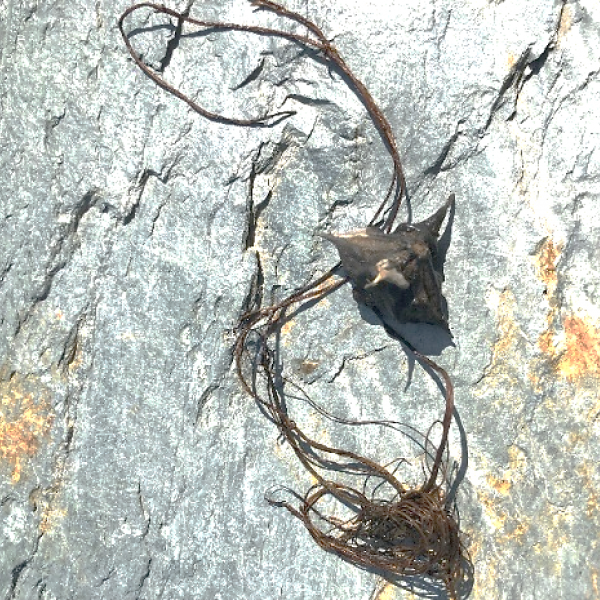
With many warm and sunny days this past summer, the Vermont Public Access Greeters were busy educating boaters and inspecting watercraft at public boat launches throughout the state. The overarching goal of the Public Access Greeters is to stop the spread of aquatic invasive species (AIS). By performing boat inspections before boats launch and after they are retrieved, greeters prevent new AIS infestations and ensure existing infestations do not spread to other lakes.
The Vermont Department of Environmental Conservation (VTDEC) Lakes and Ponds Program oversees the statewide Public Access Greeter Program and over the course of the summer receives many success stories from individual Greeters Programs whose thorough searches stop potential AIS introductions. Throughout Vermont, Greeters complete on average a total of 25,000 inspections each year and of the total, intercept approximately 3.0% AIS introductions.
This year in two separate incidences, at Lake Bomoseen and at Harriman Reservoir, greeters found and removed the hard and spiny water chestnut seeds from boats and boat trailers before the watercraft were launched. Water chestnut (Trapa natans) is a floating-leaf plant that has caused serious ecological and navigational problems throughout Lake Champlain. When introduced to a new lake, this species can be tricky to eradicate, as the seeds can remain viable in lake bottom sediment for up to twelve years.
Additionally, at Harriman Reservoir, greeters recently prevented a potential infestation of zebra mussel (Dreissena polymorpha). Zebra mussels attach to hard surfaces and can form dense colonies that damage underwater infrastructure and inhibit recreation. The introduction of zebra mussel to Harriman Reservoir could cause serious problems, as the lake is used for the generation of hydro-electric power and is a major recreation area. Due to the efforts of the Harriman Reservoir greeters, this pristine lake remains free of AIS.
After a successful year, the greeters deserve a bit of rest before the beginning of another hectic season in May 2020!
Written by: Ryan Colarusso, VTDEC Aquatic Invasive Species Program Technician